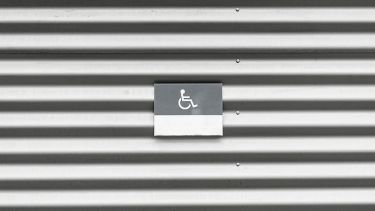Crisis or no crisis: labels matter
Professor Katherine Runswick-Cole, Professor in Education at the University of Sheffield.

As the COVID-19 crisis has emerged, we’ve seen a very stark example of how labels affect your life chances. This week, NICE set out guidance on how critical care resources should be allocated in the NHS – through application of the Critical Frailty Scale and the suggestion that comorbidities and underlying health conditions should also be considered.
Disabled people and their families were horrified to see that The Clinical Frailty Scale could be interpreted to suggest that people who have ‘a learning disability and/or autism’ would benefit less from critical care. Despite a clarification from NICE that the scale should not be used in certain groups, including those with learning disabilities or with stable long-term disabilities such as cerebral palsy, disabled people and their families remain deeply concerned about how decisions will be made about who and who will not get critical health care being determined on the basis of a label.
Even the revised guidelines fail to make any reference to the reasonable adjustments for disabled people in the discussions about critical care. Family members are terrified that their loved one will be admitted to hospital with no one to advocate with or for them.
Crisis or no crisis; labels matter.
Labels are a way of understanding human differences – they seem to offer a short hand explanation of the differences between people which helps us all to navigate the social world. This is particularly the case in disciplines, like psychology, which rely on labels to make sense differences in human behaviour but these labels can often be deeply stigmatising when described as disorders, for example: Autism Spectrum Disorder, Attention Deficit Hyperactivity Disorder; Obsessive Compulsive Disorder.
Neurodiversity has emerged as an alternative approach to understanding diagnostic labels.
This is the view that some people are wired differently from others – people have different brains with different capabilities. People like Greta Thunberg, who has revealed that she is autistic, are held up as an example of what it means to be neurodiverse – different but not disordered.
Many people find the idea of neurodiversity empowering, particularly when they have previously experienced the stigma associated with having a mental health ‘disorder’. Neurodiversity is an idea that can help people to make sense of who they are and why they feel different from other people. Crucially, it offers the possibility of community and has inspired rights-based activism by neurodiverse people.
And yet, there is reason to be cautious about even this approach to labelling.
The reason we label people is because we’re trying to make sense of the world and why people seem to be different from what we think of as the ‘norm’. But the risk we run by categorising people in these ways is marginalisation. Even though identifying themselves as neurodiverse is empowering for many people, it still depends on a division between those who are ‘neurotypical’ versus those who are ‘neurodiverse’ resulting in a division between ‘us’ and ‘them’.
No person is ever just a stereotypical example of a category or label, but the labels are still used in ways that homogenise and stereotype people as we’ve seen this week in the NICE guidelines. The COVID-19 crisis has shone a light on the risks of decision-making based on labelling, but crisis or no crisis, decisions should never be made solely on the basis of a label. There is no ‘us’ and ‘them’, WE all have human value.
Professor Runswick-Cole sits on the editorial board of Community, Work and Family, and is a member of Learning Disability England Academics, alongside her teaching at The University of Sheffield.
Professor Runswick-Cole is co-author of the book Re-thinking Autism, which challenges the existing approaches to autism that limit and damage the individuals who receive that label. Much of her research has been carried out alongside disabled children and young people and their families and allies, and more recently, with people labelled with learning disabilities in a time of austerity.

iHuman
How we understand being ‘human’ differs between disciplines and has changed radically over time. We are living in an age marked by rapid growth in knowledge about the human body and brain, and new technologies with the potential to change them.
